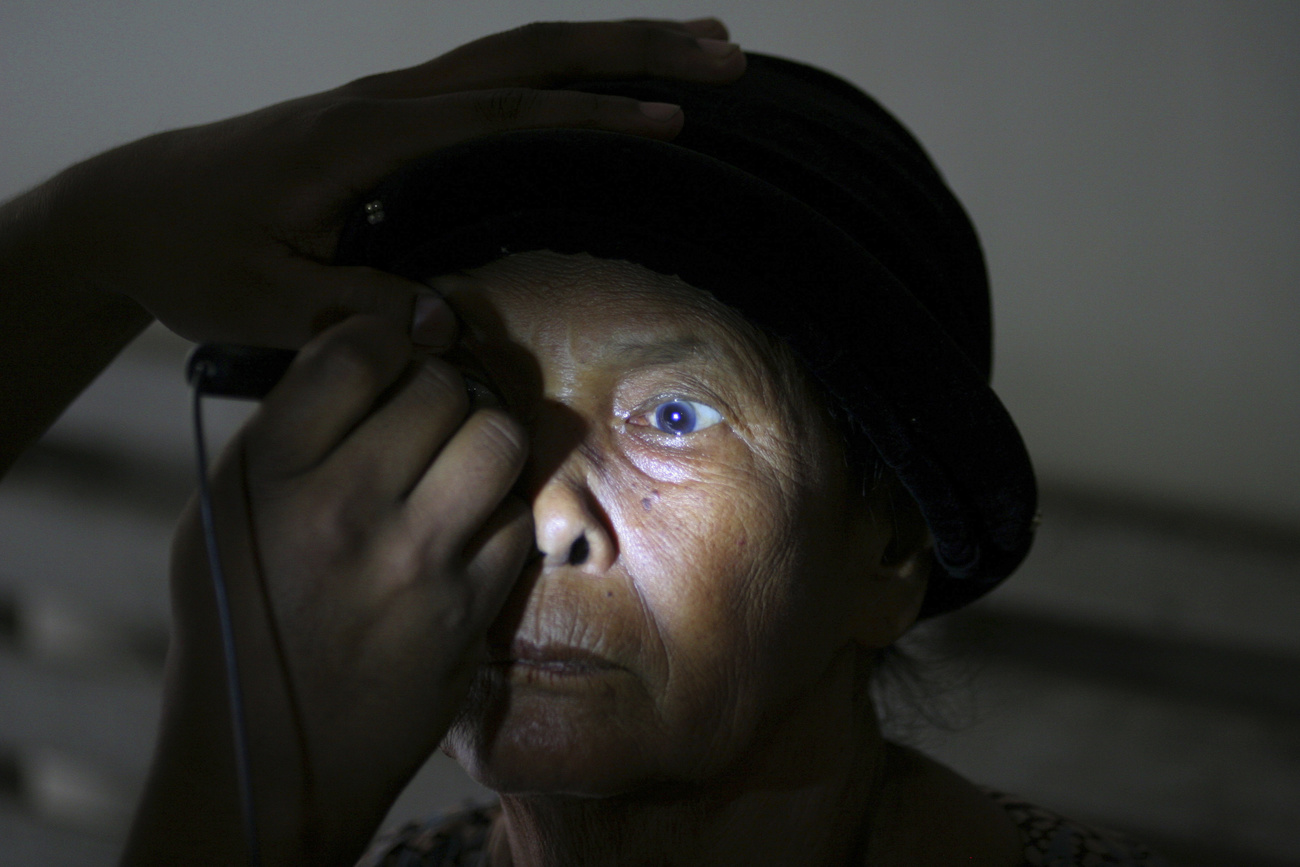
Gene therapy trial partially restores eyesight

A blind man has regained part of his sight after a new treatment genetically engineered his eye to produce light-sensitive algae proteins.
The technique, known as optogenetics, was successfully trialled in France with input from the Institute of Molecular and Clinical Ophthalmology Basel (IOB), which is affiliated with the University of Basel.
Cells in the man’s retina were programmed to produce a protein called ChrimsonR, which is sensitive to light. The protein is naturally produced by algae to help them detect light.
The patient, who had been completely blind for two decades due to a condition known as retinitis pigmentosa, was first able to detect painted stripes on a pedestrian crossing and then to count objects on a table.
“The findings provide proof of concept that using optogenetic therapy to partially restore vision is possible,” said IOB founder Botond RoskaExternal link.
The results of the trial were first published in the journal Nature MedicineExternal link. The trial was a collaboration between the IOB, the University of Pittsburgh, the Institute of Vision in Paris, Streetlab and GenSight Biologics.
Around 115 researchers work at the IOB, which is financed by pharmaceutical company Novartis, the University of Basel, the University Hospital Basel and the canton of Basel.
While optogenetics has now been shown as a viable treatment for blindness, researchers cautioned that as the technique is new its full potential has yet to be determined.

In compliance with the JTI standards
More: SWI swissinfo.ch certified by the Journalism Trust Initiative




























You can find an overview of ongoing debates with our journalists here . Please join us!
If you want to start a conversation about a topic raised in this article or want to report factual errors, email us at english@swissinfo.ch.